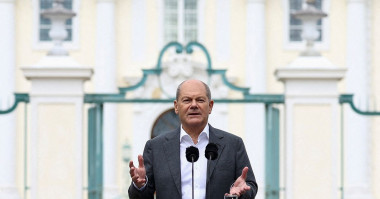German Chancellor Scholz speaks out against new nuclear power
Growth in german wind capacity is slowing. Soo… then the plan is to keep on with lignite and gas? Am I missing something?
Installed Wind Capacty - Germany

There have been multiple accounts created with the sole purpose of posting advertisement posts or replies containing unsolicited advertising.
Accounts which solely post advertisements, or persistently post them may be terminated.
Growth in german wind capacity is slowing. Soo… then the plan is to keep on with lignite and gas? Am I missing something?
Installed Wind Capacty - Germany
